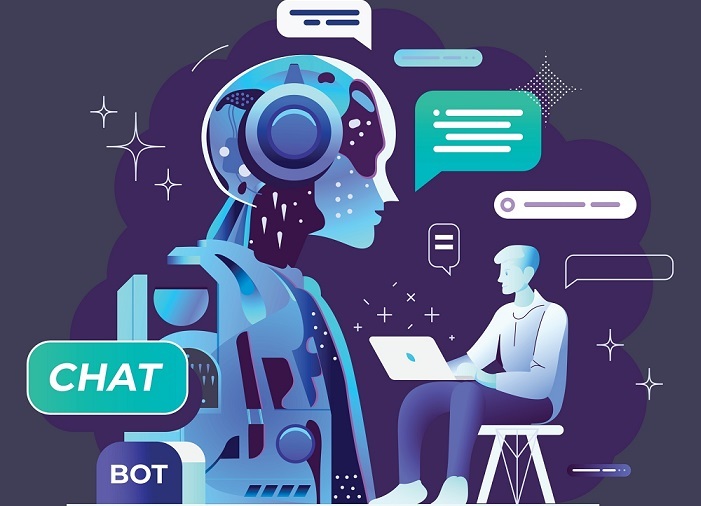
 Data Structure
Data Structure Networking
Networking RDBMS
RDBMS Operating System
Operating System Java
Java MS Excel
MS Excel iOS
iOS HTML
HTML CSS
CSS Android
Android Python
Python C Programming
C Programming C++
C++ C#
C# MongoDB
MongoDB MySQL
MySQL Javascript
Javascript PHP
PHP
- Selected Reading
- UPSC IAS Exams Notes
- Developer's Best Practices
- Questions and Answers
- Effective Resume Writing
- HR Interview Questions
- Computer Glossary
- Who is Who
Personalizing experiences using chatbots and AI
Introduction
In today's fast-paced digital era, businesses strive to provide exceptional customer experiences to gain a competitive edge. Personalization has become a key focus, as customers increasingly expect tailored interactions that cater to their specific needs and preferences.
Chatbots and Artificial Intelligence (AI) have emerged as powerful tools in this endeavor, enabling organizations to create personalized experiences at scale. This article explores how chatbots and AI are revolutionizing customer engagement by personalizing interactions, enhancing customer satisfaction, and driving business growth.

Understanding Personalization in the Digital Age
The Rise of Personalization ? As customers are bombarded with vast amounts of information, generic interactions no longer suffice. Personalization has become a crucial aspect of customer engagement, empowering businesses to deliver relevant content, product recommendations, and tailored solutions.
The Power of Data ? Personalization relies on data to understand customer preferences, behaviors, and demographics. AI-powered chatbots collect and analyze this data to create customer profiles, enabling businesses to gain insights into individual preferences, purchase history, and browsing patterns.
Leveraging Chatbots for Personalization
Chatbots: The Modern Customer Assistants ? Chatbots act as virtual customer assistants, available 24/7 to address customer queries, provide support, and offer personalized recommendations. These conversational agents simulate human-like interactions and leverage AI algorithms to understand customer intent and respond effectively.
Natural Language Processing (NLP) ? NLP is a vital component of chatbot technology, enabling machines to comprehend and generate human language. NLP algorithms analyze customer messages, extract intent, and contextually respond with relevant information or actions.
Personalization through Contextual Understanding ? AI-powered chatbots excel in contextual understanding, leveraging past interactions and customer data to deliver personalized experiences. By remembering previous conversations, preferences, and purchase history, chatbots can tailor responses and recommendations to each customer's unique needs.
Enhancing Customer Engagement Through AI
Personalized Product Recommendations ? Chatbots employ AI algorithms to analyze customer preferences, browsing history, and purchase patterns to offer personalized product recommendations. By understanding individual tastes, chatbots can suggest relevant items, thereby increasing customer satisfaction and driving sales.
Proactive Assistance and Support ? AI-powered chatbots can proactively reach out to customers with personalized offers, assistance, or follow-ups based on their browsing behavior or previous interactions. This proactive approach enhances engagement and makes customers feel valued, leading to increased loyalty.
Tailored Content Delivery ? Chatbots can curate and deliver personalized content to customers based on their interests and preferences. Whether it's news updates, blog articles, or educational resources, AI-powered chatbots ensure that customers receive relevant content, fostering a sense of engagement and trust.
Data Privacy and Ethical Considerations
Privacy and Consent ? With the increasing use of personal data for personalization, businesses must prioritize data privacy and obtain customer consent for collecting and analyzing their information. Transparent privacy policies and secure data handling practices are essential to build and maintain customer trust.
Ethical Use of Data ? Businesses must be responsible in their use of customer data, ensuring it is used solely for the purpose of personalization and not shared with third parties without consent. Implementing strict data governance and adhering to ethical guidelines helps maintain a positive relationship with customers.
Challenges and Future Possibilities
Overcoming Language and Cultural Barriers ? Chatbots face challenges when dealing with different languages, dialects, and cultural nuances. Advancements in NLP and machine learning techniques are continuously improving chatbot capabilities to handle diverse customer interactions effectively.
Balancing Automation and Human Touch ? While chatbots excel in efficiency and scalability, there is still a need to strike a balance between automation and the human touch. Integrating chatbots with human agents can provide seamless transitions when complex or emotional situations arise, ensuring personalized experiences are not compromised.
Embracing Voice Assistants ? As voice-activated devices and virtual assistants gain popularity, incorporating voice-enabled chatbots can further enhance personalization. Voice-based interactions allow for more natural and convenient communication, creating a more immersive and personalized experience for customers
Conclusion
Personalizing experiences using chatbots and AI is transforming customer engagement by delivering tailored interactions, personalized recommendations, and proactive support. By leveraging data, AI algorithms, and natural language understanding, businesses can create meaningful connections with their customers, driving satisfaction, loyalty, and ultimately, business growth.
As technology continues to evolve, the possibilities for personalization are limitless, enabling organizations to provide exceptional experiences that cater to the unique needs of each customer.
In the dynamic landscape of customer expectations and ever-evolving technological advancements, personalizing experiences using chatbots and AI is an ongoing journey. Businesses must continuously refine their strategies, leverage customer feedback, and stay at the forefront of AI innovation to deliver increasingly sophisticated and tailored experiences.
By embracing the power of chatbots and AI, organizations can forge deeper connections with their customers, foster loyalty, and gain a competitive edge in today's hyper-competitive market. The future holds immense potential for personalization, and businesses that embrace this transformative trend will be poised to thrive in the era of customer-centricity and digital disruption.

